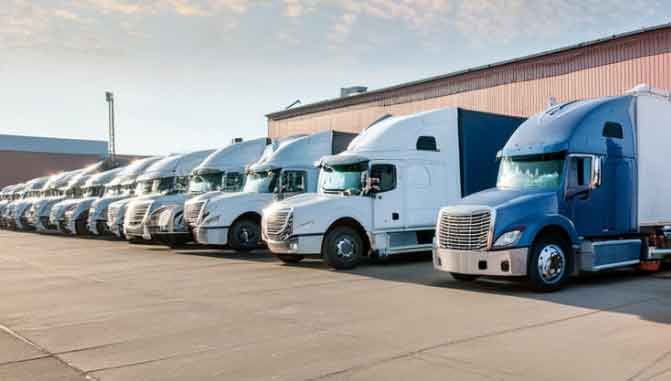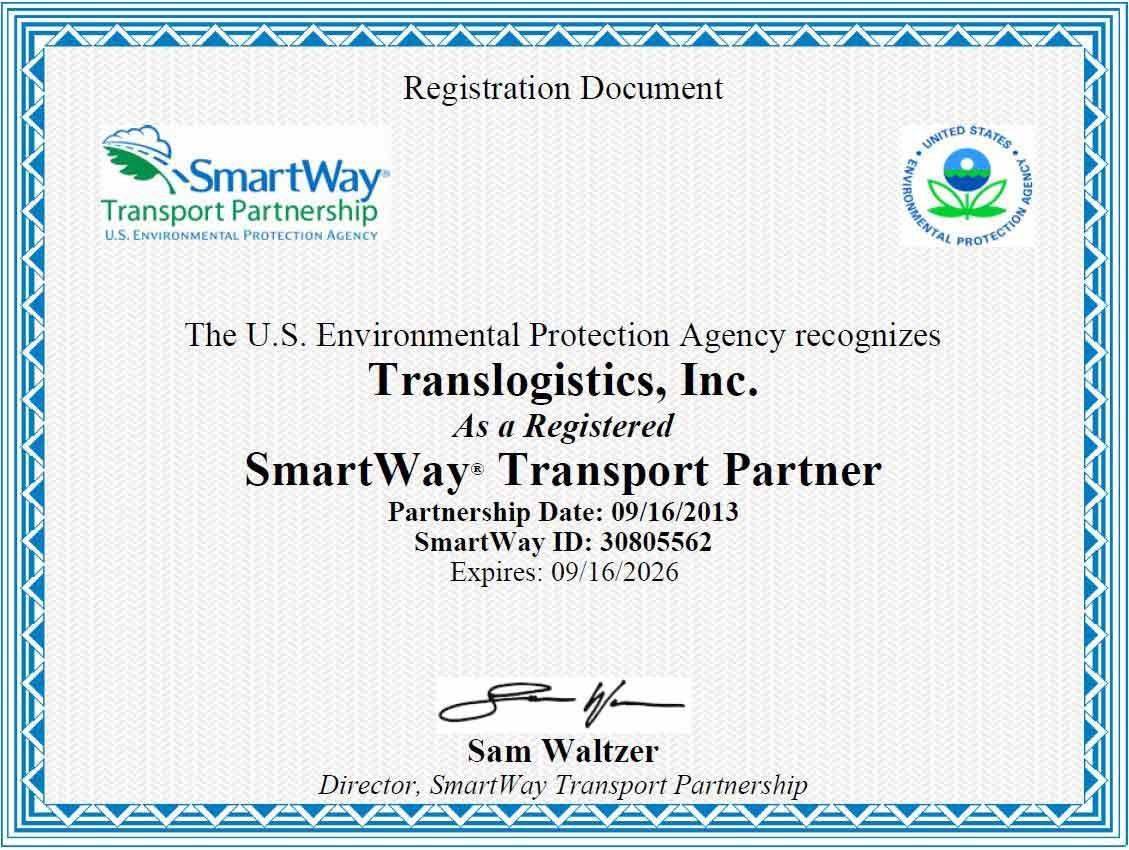3PL Freight Broker
3PL Freight Broker
Translogistics, an award-winning 3PL logistics solutions provider, offers a variety of 3PL services to businesses that need to manage their supply chain operations effectively. One of the key 3PL solutions offered by Translogistics is third-party logistics brokerage services. In this article, we will explore what a 3PL broker is, and the difference between truckload brokerage services and an LTL broker service.
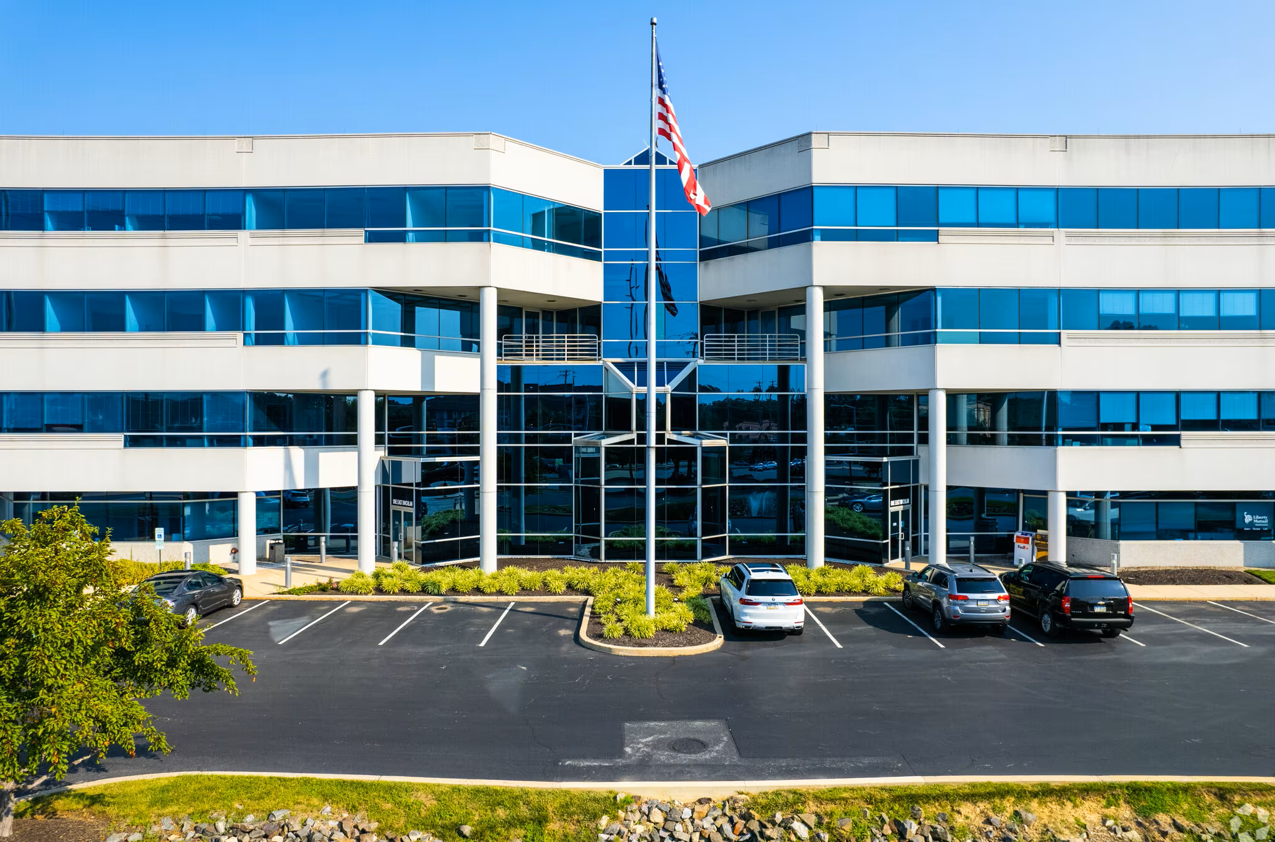
What is a 3PL Broker?
A
3PL broker is a third-party logistics provider that acts as an intermediary between shippers and carriers. The 3PL company arranges transportation for the shipper and works with carriers to ensure that the freight is transported safely and on time. The broker also handles all of the administrative tasks associated with the shipment, such as paperwork, insurance, and payment processing. They offer important services in return to the shipper including cargo claim management, freight bill audits, and carrier RFP management, and they supply shippers with supply chain analytics harvested from a TMS system.
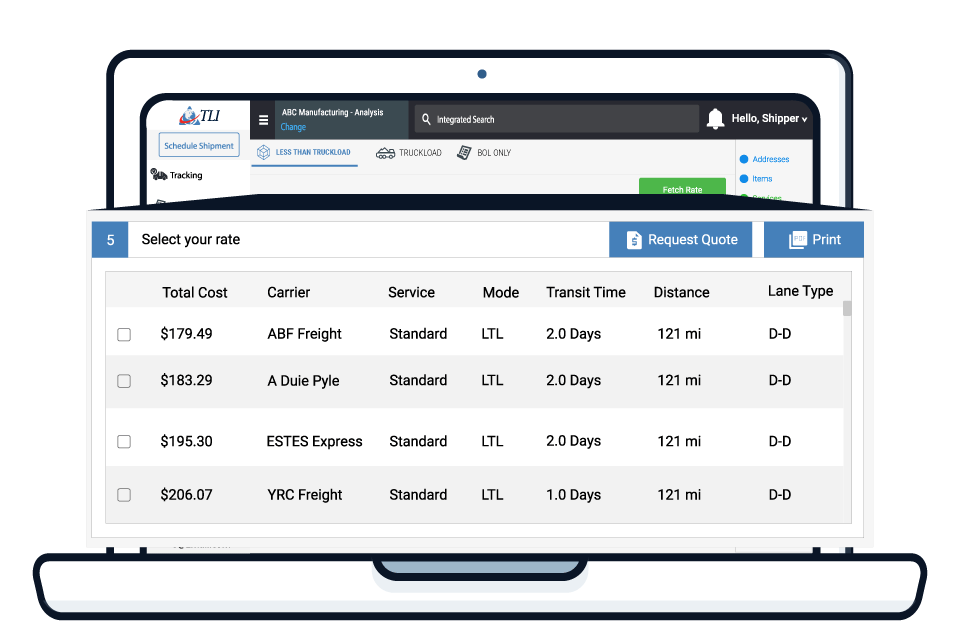
What is a 3PL Brokerage?
Elite shippers gain a competitive edge with the freight brokers software system, a TMS system that holds carriers accountable by transparently showcasing their rates side-by-side, empowering you to select the most cost-effective provider for each shipment. TLI's freight brokerage platform doesn't just streamline logistics; it's a powerhouse of supply chain analytics, offering insights that drive informed decisions and optimize your operations efficiently. Take charge of your supply chain like never before—compare, analyze, and select carriers seamlessly, ensuring optimal cost management and reliability. With our system, harness the power to drive efficiency while maintaining a firm grip on your logistics expenses, maximizing savings without compromising quality.
3PL Brokerage Services
3PL brokers offer a range of services to shippers, including access to a network of carriers, negotiation of rates, and management of transportation operations. This allows shippers to focus on their core business operations while the 3PL company manages the logistics of their supply chain. Additional services TLI offers include RFP management, freight audits, along with cargo claim mitigation.
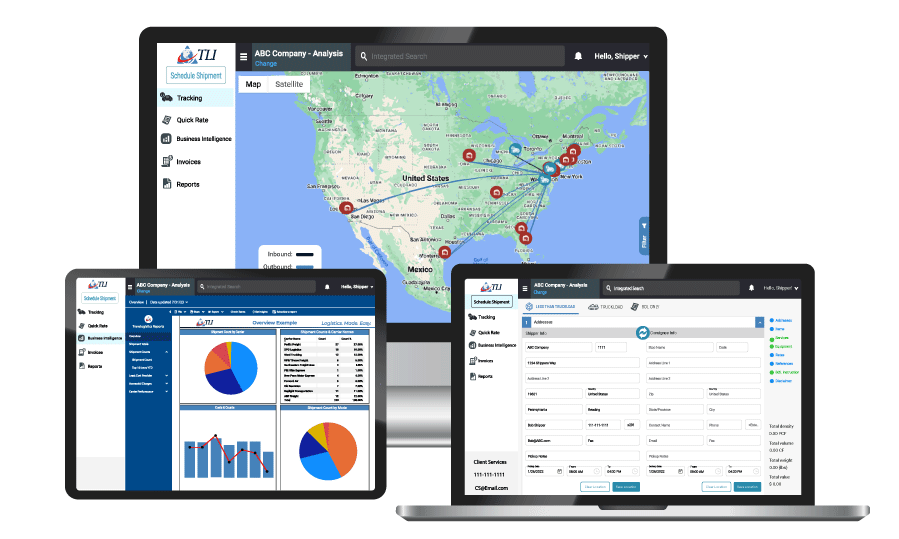
3PL Brokerage Integration
Integrating your ERP with our TMS system unlocks a new realm of efficiency, allowing seamless data flow between your core operations and logistics management. Experience a unified supply chain ecosystem where your ERP's insights harmonize with our TMS's real-time visibility, empowering smarter decision-making and streamlined operations.
Say goodbye to siloed information—our integration ensures a synchronized workflow, optimizing resource allocation and enhancing overall productivity. Elevate your business's performance by integrating your ERP with our TMS, creating a synergy that maximizes efficiency and drives success.
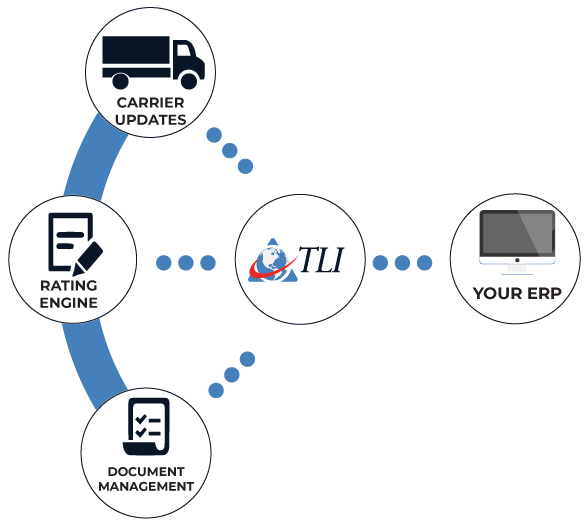
3PL Brokerage FAQ:
3PL Brokerages are essential for shippers seeking to consolidate their transportation spend efficiently. By partnering with a
certified freight brokerage, shippers gain access to a network of carriers, negotiating power, and TMS technology expertise in optimizing routes and
modes of transportation. This consolidation not only streamlines operations but also unlocks cost savings, improved efficiency, and access to a diverse range of transportation options, ensuring maximum value for the shipper's investment.
3PL Brokerage Differences
There are two types of freight transportation services that 3PL brokers can offer: truckload brokerage services and LTL (less-than-truckload) broker services.
Truckload Brokerage Services
Truckload brokerage services are typically used when a shipper has a large volume of goods to transport. In this case, the 3PL company will arrange for a truckload carrier to transport the entire shipment in one go. The carrier will pick up the shipment from the shipper's location and deliver it directly to the destination. This is a cost-effective option for shippers who have large volumes of freight to transport.
LTL Brokerage Services
On the other hand, LTL broker services are used when a shipper has a smaller volume of goods to transport. In this case, the 3PL company will arrange for an LTL carrier to transport the shipment. LTL carriers combine multiple shipments from different shippers to fill a single truck. This allows shippers to share the cost of transportation and makes it a cost-effective option for those with smaller shipments.
Flatbed Brokerage Services
In addition to these services, some 3PL companies offer specialized brokerage services, such as flatbed brokerage services, along with other equipment types & modes. Flatbed brokers specialize in arranging transportation for oversize or overweight freight that cannot be transported in a standard trailer. This requires specialized equipment and expertise, which is why many shippers turn to flatbed brokers to handle their transportation needs.
In conclusion, 3PL brokerage services are a critical component of the logistics industry. By partnering with a reputable 3PL company like Translogistics, shippers can ensure that their goods are transported safely and efficiently, allowing them to focus on their core business operations. Whether you need truckload brokerage services, LTL broker services, or specialized flatbed brokerage services, a reliable 3PL broker can help you manage your logistics needs effectively.
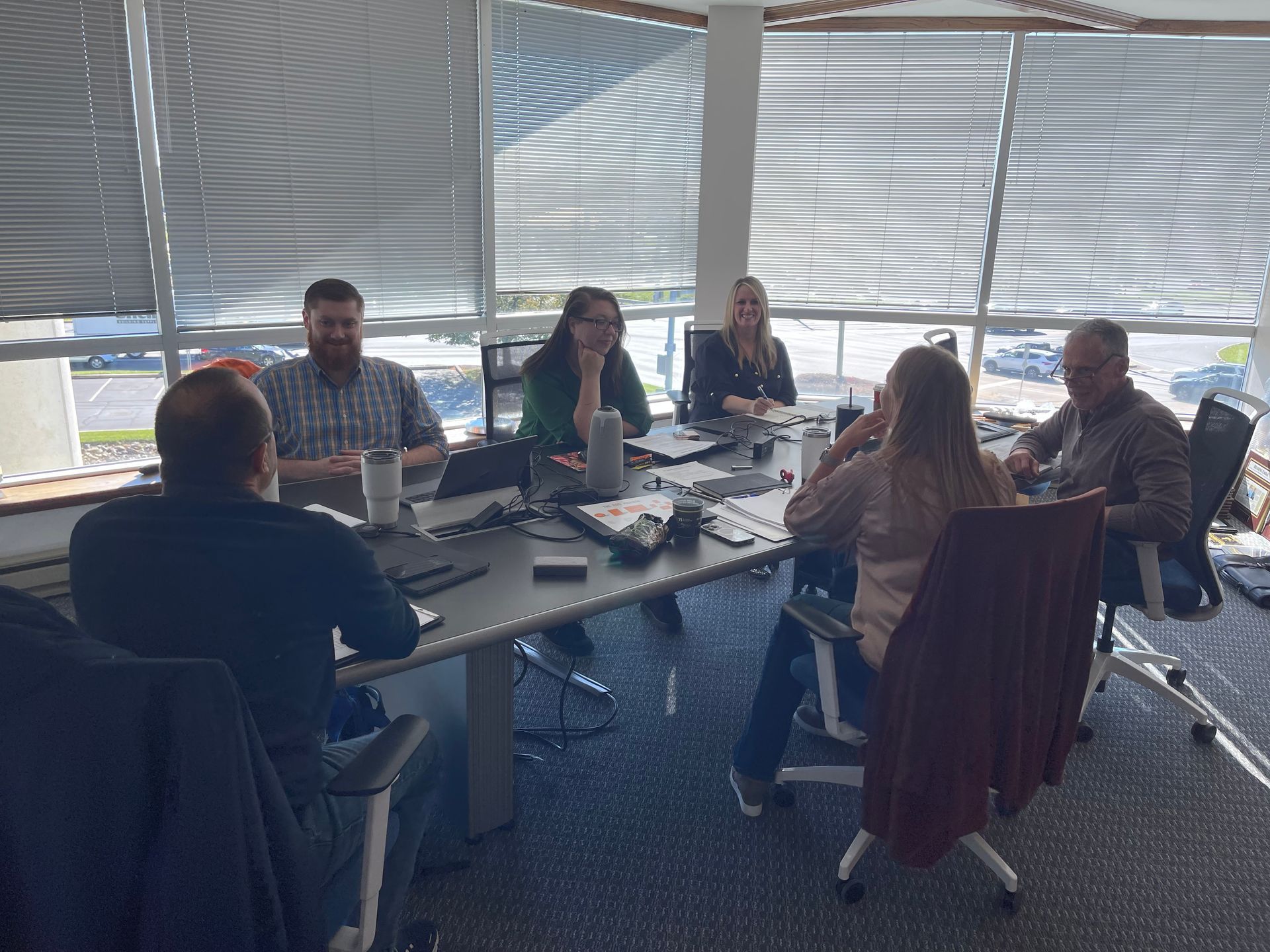
3PL Brokerage
Choose Translogistics (TLI) as your 3PL brokerage partner for unparalleled expertise cultivated over three decades in the industry. Our team comprises seasoned experts dedicated to surpassing expectations. We're not just a 3PL—we're the best, equipped to handle any mode with ease and an unbeatable attitude. With a 30yr legacy of excellence and a commitment to top-tier brokerage services, partnering with TLI ensures your logistics challenges are met with experience, proficiency, and an unwavering commitment to your success.
TLI Insights
Get the latest logistics insights and tips from TLI's award-winning team. Stay ahead in transportation planning.
Questions? Email us at marketing@shiptli.com

